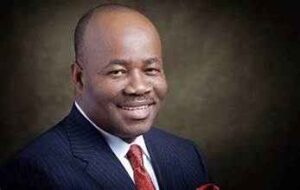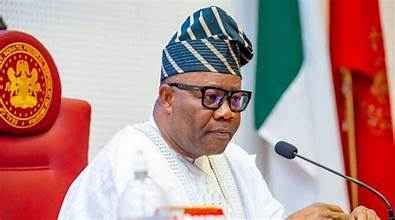Senate President Godswill Akpabio has revealed that the recently passed minimum wage legislation mandates that employers must pay their domestic staff—including drivers, housekeepers, and security personnel—a minimum salary of N70,000.
Akpabio shared this information after the amendment to the Minimum Wage Act was approved during a plenary session in Abuja on Tuesday.
He clarified that the N70,000 wage is set as the baseline for all workers across various sectors, not limited to government employees.
“The legislation specifies that if you run a tailoring business and hire extra help, that person must earn at least N70,000,” Akpabio explained.
He added, “If you are a new mother hiring a housemaid to care for your child, the minimum pay cannot be less than N70,000. This is not a cap on wages; it applies universally.”
This means that even for personal roles like drivers or security guards, the minimum payment must also meet this threshold, Akpabio confirmed.
He urged employers to prepare for the enforcement of this new wage structure pending President Tinubu’s signature to finalize the bill.“I am pleased that this has come to fruition, and I encourage employers to exceed this benchmark for all employees,” he remarked

Akpabio further congratulated the Nigeria Labour Congress, the general populace, and the National Assembly for successfully reducing the minimum wage review period from five years to three years, calling it a significant achievement for the citizens of Nigeria.
It was previously reported that the National Assembly approved the new N70,000 minimum wage during a recent plenary session.This bill, initiated by President Bola Tinubu, was the result of extensive discussions between the federal government and organized labor unions.
Originally, labor representatives had proposed a minimum wage of N495,000, which was later revised to N250,000 after negotiations with the wage committee. However, after further discussions with President Tinubu, labor ultimately accepted the N70,000 figure, leading to the submission of the new bill to both the House of Representatives and the Senate.
The legislation also shortens the review timeline for minimum wage from five years to three years.It is anticipated that President Tinubu will sign the bill into law in the coming days, officially establishing it as Nigeria’s new minimum wage standard.




